Learn how to help an anxious kid in 6 simple steps. As a parent, you can’t take social anxiety, panic attacks, and even anxious feelings lightly. Find out how you can support young children and older children who are struggling with anxiety.
If you wait for your kid to come out and tell you, “I have anxiety”, you can keep waiting. Anxiety is tricky, and it can wear many disguises in children.
As much as anxiety feels like a nuisance in life, it serves an important purpose. This is even the case in children.
Think back to the caveman days. If little Cave-girl Sally and little Cave-boy Fred weren’t worried about the growls coming from the nearby bush, then they may have ended up as a sabertooth tiger’s snack.
Today, we don’t have to worry about being chased by sabertooth tigers; however, there are other stressors that our children must face. If your child feels isolated , these feelings may grow out of control.
Sometimes for parents, the challenge comes with identifying when your child’s anxiety is functioning at a normal level, and when it is consuming parts of their lives.
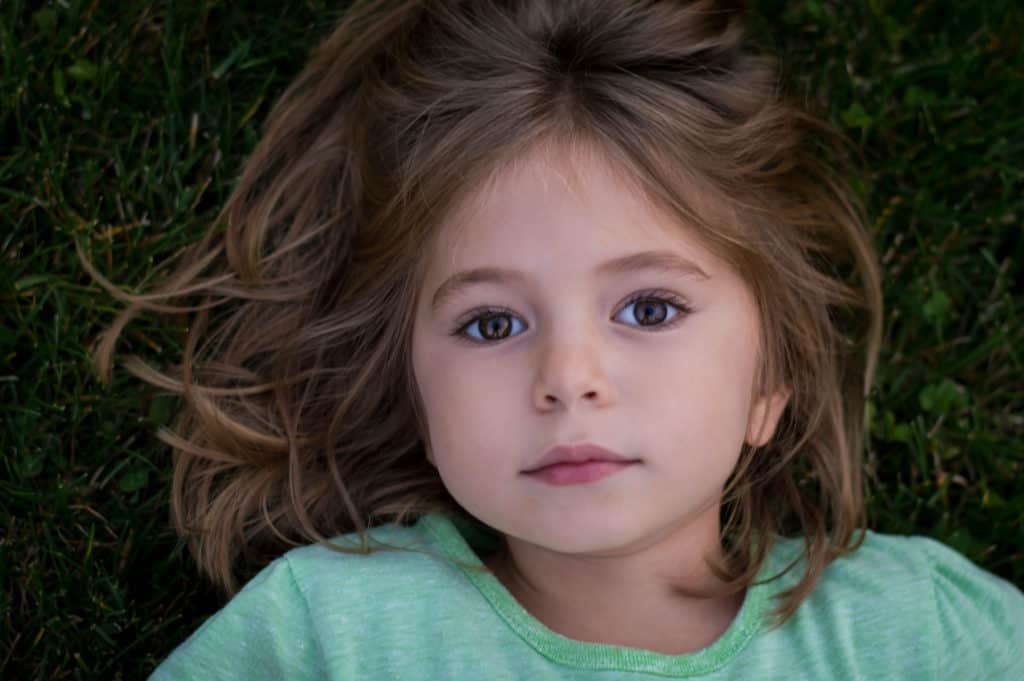
According to the American Academy of Pediatrics (AAP), up to 30% of youths will develop anxiety disorders and specific phobias.
As parents, it is important that we learn how to identify and support anxious children, and know when to seek professional help.
Related: How to Hard Wire Your Kid for Happiness
Is my Child Anxious?
My daughter is the poster-child for kids with anxiety. Even in the absence of any visible issues or problems, my child’s fears are bothering her.
We are a very close-knit family. There are positive vibes running through our home at all times; however, like many mothers, I felt like I must have caused this behavior.
Related: Fighting off Mom Guilt
The truth is, studies show that anxiety is often linked to genetics. Children can develop anxiety even if they are raised by the most loving of parents in the most stable of homes. It’s common that another family member also struggles with depression, anxiety, or a social phobia.
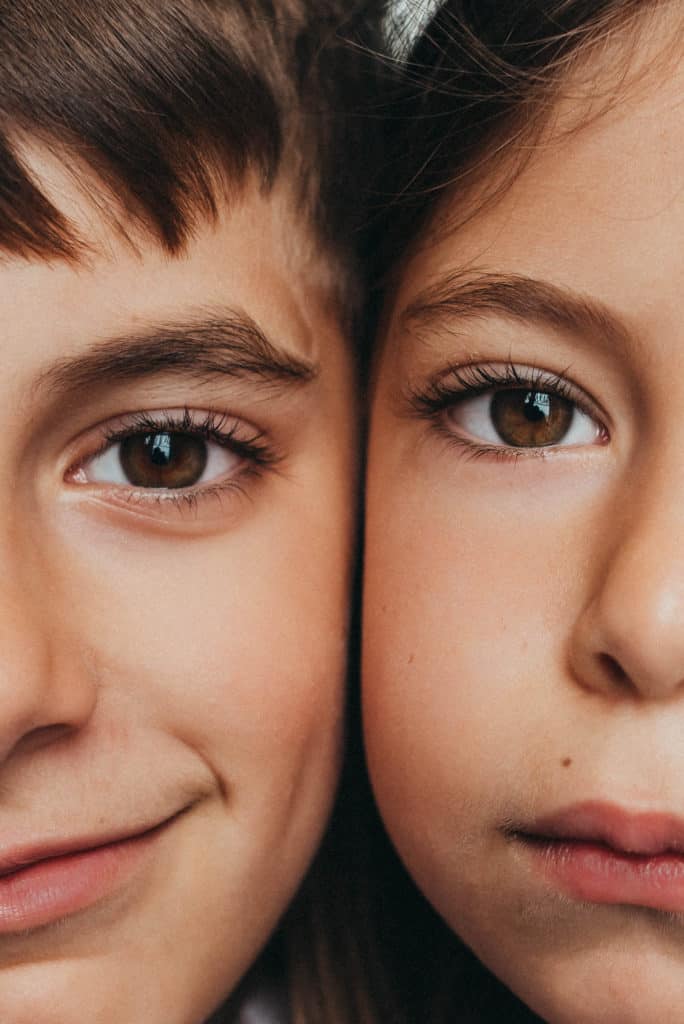
My 8 year old daughter’s internal alarm system went off constantly. She approached every situation with a “but what if…” attitude.
Many young kids have a fear of the dark or loud noises, but your child’s worries shouldn’t interfere with their ability to enjoy their life.
I labeled my daughter as a “defiant” or “strong-willed” kid; however, her anxiety was disguised by these 5 other symptoms:
- When she seemed worried, she would tell me that her stomach hurt.
- I brushed aside her irrational fears because they did not make sense to me. This would include worries such as, “what if a bear comes in our house when we are sleeping.”
- Even though she enjoyed activities, like gymnastics, she refused to attend her lesson. I thought she was being stubborn.
- She would not go to bed at night unless I laid with her until she fell asleep. I thought I spoiled her.
- Even at age 6 and a half, she would have a meltdown over very simple things that I thought she should have grown out of, such as how much milk was in her cereal bowl.
After talking to her pediatrician, I realized that the battles were not the common battles that I heard other mother’s complain about regarding a simply difficult child.
Related: How to Help a Child with Obsessive-Compulsive Disorder
Anxiety Symptoms in Kids
Often adults can easily verbalize their own anxiety; however, in children, anxiety ques aren’t always so apparent. According to the AAP, some common signs of anxiety in children can include:
- Unreasonable fears about normal daily routines
- Hard time sleeping
- Refusing to go to school or other activities, fear of social situations
- Increased tantrums and meltdowns
In real life, these seemingly obvious symptoms may be a little harder to detect. Consider asking yourself these questions:
- Do I spend a large portion of my day comforting my child’s fears?
- Does my child frequently have stomach aches or headaches?
- Are my child’s outbursts impacting our entire family?
My daughter would try to get out of going to school, and she would complain about stomach aches when things made her nervous. Also, I would feel like I had no energy to dedicate to my two sons after facing one of her drawn-out meltdowns.
You may also find helpful: Anger Management Coping Skills for Kids
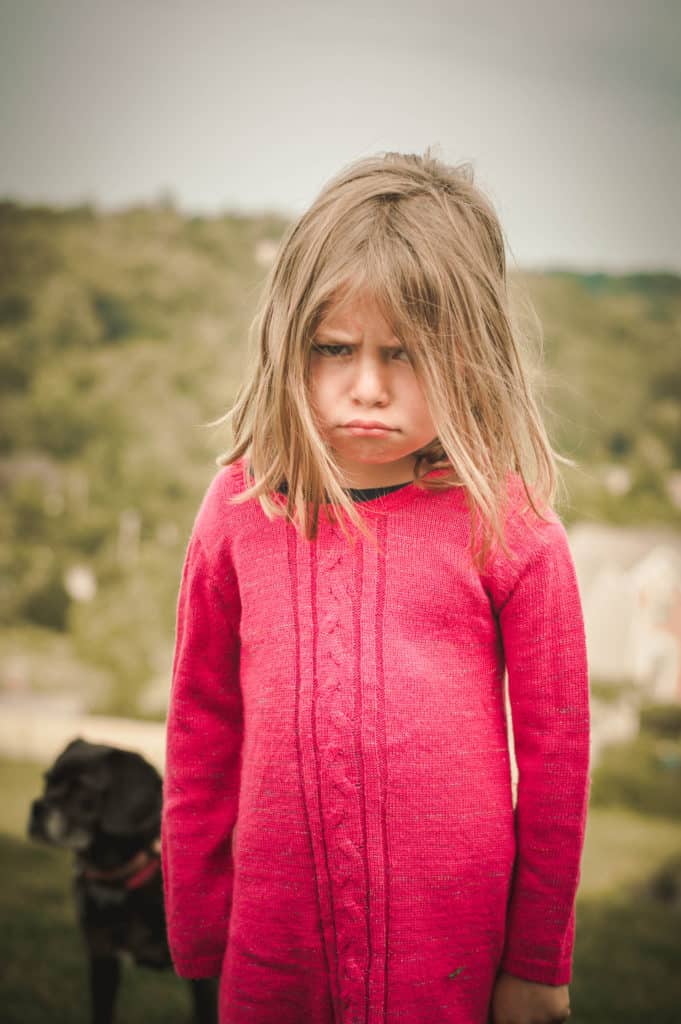
It hurt watching my daughter struggle with these issues. I tried to provide her with a happy and comfortable life, and watching her battle these issues was painful for me, as a mother.
Try introducing your kids to these these Journal Prompts for Anxiety.
The ABC’s of Anxiety Support
Once I came to terms with her anxiety, I was able to understand and better support her.
The good news is there is an effective way to help anxious kids.
Make these 6 simple adjustments to support your child, which are based on recommendations from the American Academy of Pediatrics.
Avoid Avoidances
Commonly, when children have anxiety, they avoid certain things, related to your child’s fear. Simple daily events can feel like scary situations.
This may be a place (such as school or an sporting event), or an activity (such as going to bed on their own).
It sounds like a double negative, but do your best to avoid these avoidances. Do not allow your child’s anxious thoughts pull them away from life.
If they are trying to avoid going to school or soccer. Tell them you are right there with them, and encourage them to go. Even if it is only for a short time.
Be positive and teach self-talk
Teach your kids about positive self-talk. Help them learn how to label their emotions properly so that they can work through any troubling emotions.
For example, if your child is saying “I can’t go to school because it makes my belly hurt”, encourage them to elaborate on their emotions with questions like, “how does that make you feel?” or “why do you think school is making your belly hurt?”
These 12 Calming Cards can help you kid calm themselves down when they feel overwhelmed:
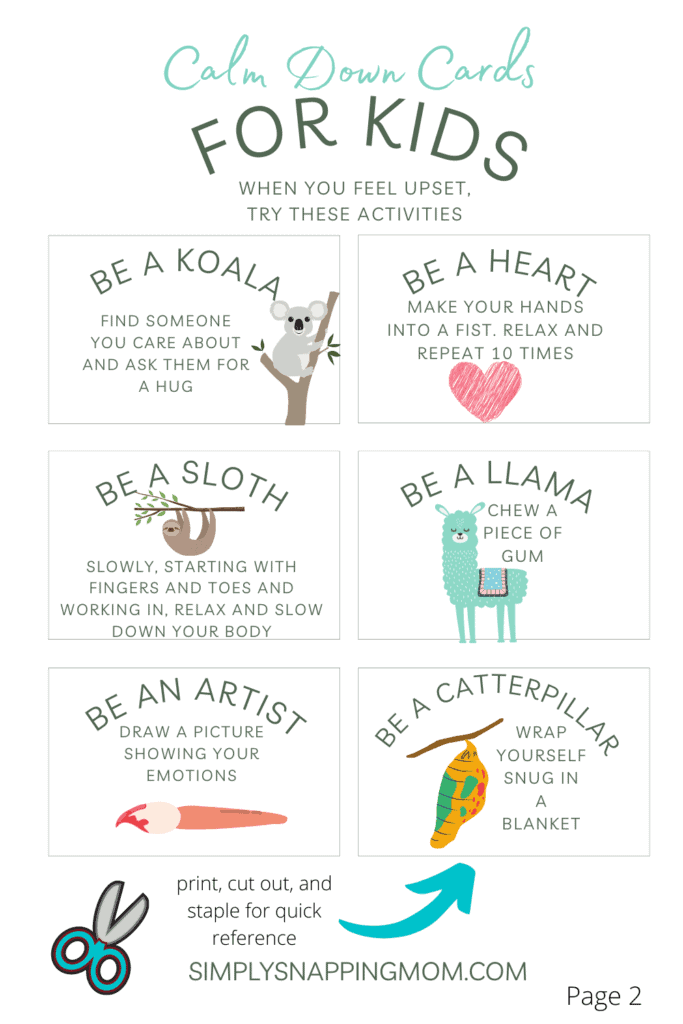
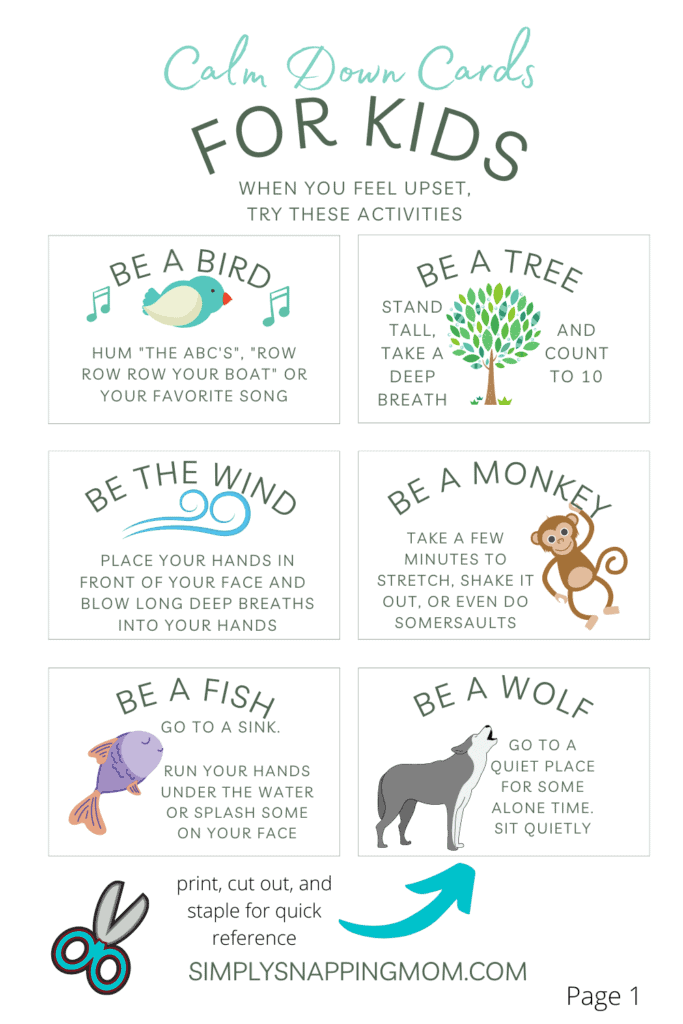
Click here for full post on How to Give Kids Tools to Calm Down.
Your child can use these tools to start to take small steps to managing their anxiety. Tell your child to try these activities that when they feel their heart rate get fast or the worries won’t leave them alone.
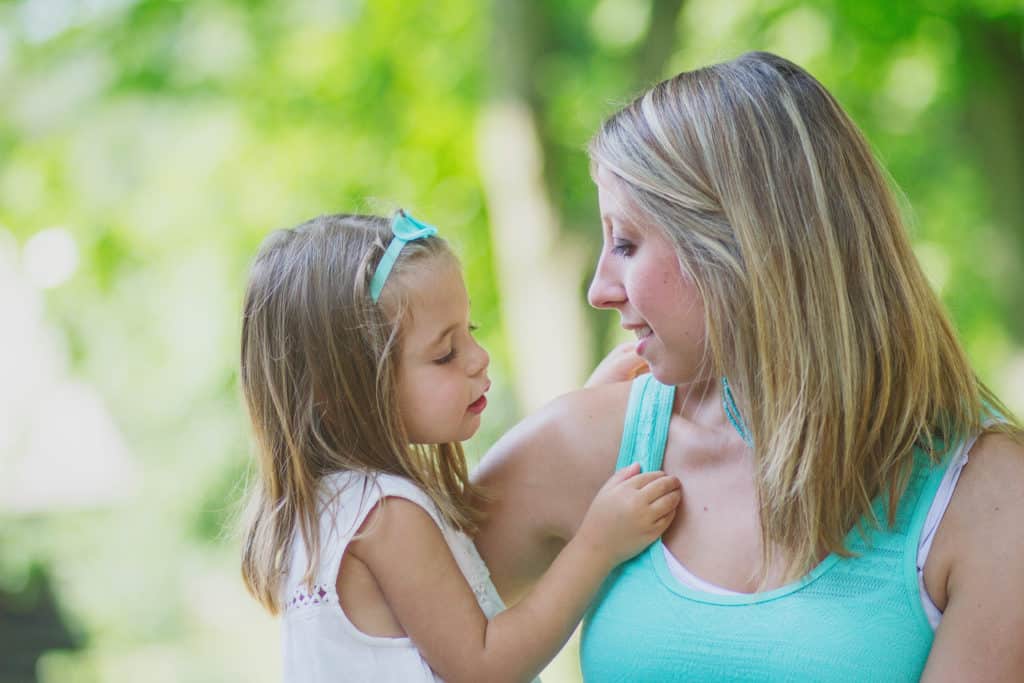
Also try these Mindfulness Activities for Kids.
Calm yourself down before approaching a meltdown
Raising a child who suffers from anxiety can be absolutely exhausting for parents. It’s okay to admit it. Parents of anxious children often admit to feeling emotionally drained.
It is challenging to stay composed when your child is throwing a catastrophic meltdown about something you can’t even pretend to understand.
The best advice is to walk away. Take a 10 deep breaths, and remind yourself that your child is not being difficult, they are having a difficult time.
It’s a good idea to try these Mindfulness Activities designed for parents.
Do not just wait for the problem to go away
It may not “just be a phase”. Your child may need help from a medical professional to help understand and work through their emotions.
Regardless of the level of anxiety your child faces, you should discuss it with your child’s pediatrician immediately.
If your child is having significant problems with school (including missing a lot of school), or having other problems with daily functioning, you should talk to your doctor. You may have to reach out to a child psychiatrist or clinical psychologist who specializes in childhood anxiety.
Exercise, diet, and sleep
A balanced lifestyle will help provide a stable ground for your child to stand on. Do your best to provide sufficient opportunities for exercise, a balanced diet, and appropriate amounts of sleep.
Controlling these environmental factors will help eliminate any uncomfortable feelings that may lead to symptoms of anxiety.
Focus on fun experiences
Studies, like this one, demonstrate the positive benefits that family time has on stress.
Provide your child with screen-free experiences to relax and enjoy life. Engage as a family and reconnect as much as possible.
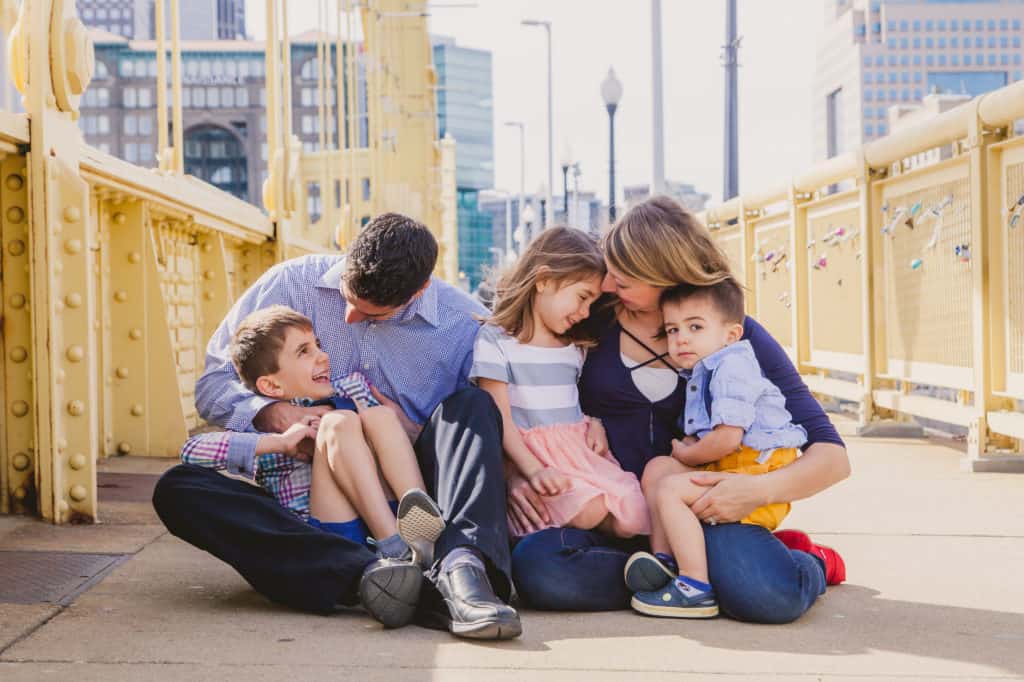
Print this, and subscribe for access to all the Simply Rooted Family Freebies.
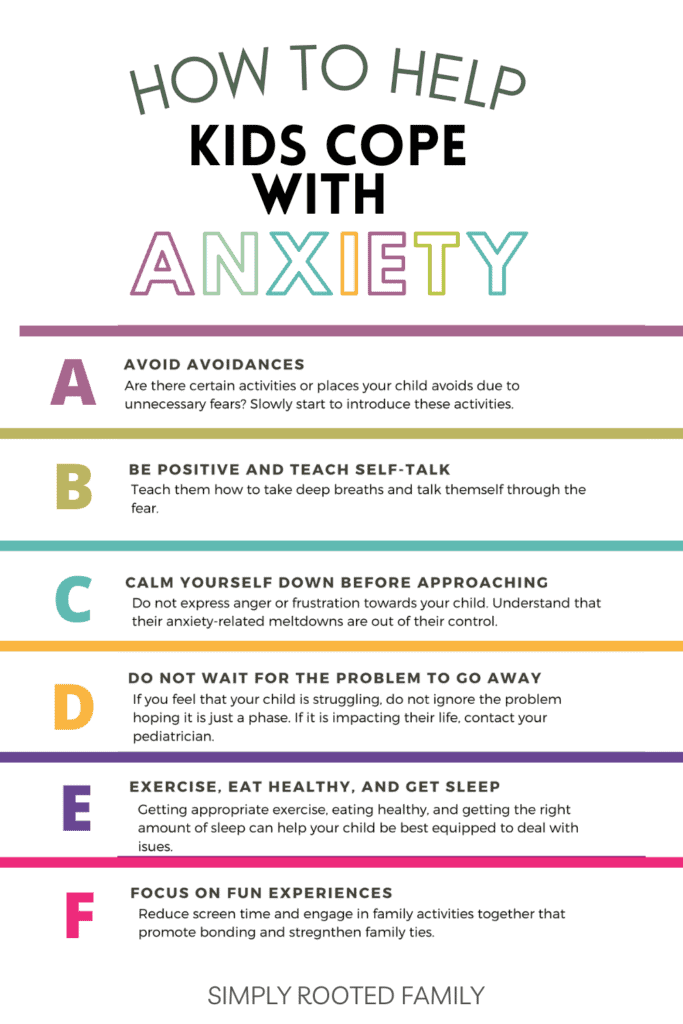
Final Thoughts on How to Help an Anxious Child
Following the above practical strategies can help guide you through supporting your anxious child.
Most importantly, remember that your child’s anxiety may not be a “phase”. Support your child with a positive embrace, and know when to reach out for professional help.
If you found this helpful, share it! You can follow us on Facebook for more up to date discussions on parenting and photography.
If you feel that your child is displaying anxious behavior or symptoms of a panic disorder, consult your pediatrician as soon as possible.
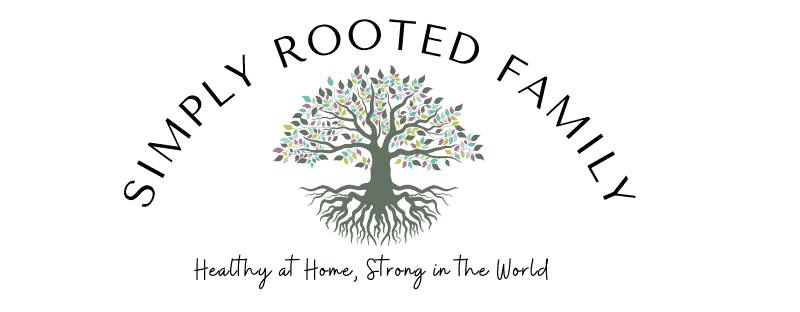
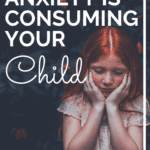
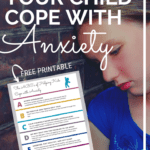
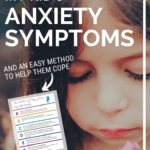
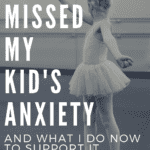
Nicole
Monday 12th of February 2024
Hello! This is some great information! Could you please send me a copy of the calm down cards and the how to cope with anxiety print out. Thank you Sooo much for sharing! Have an amazing day!
Kammy
Sunday 5th of November 2023
Hi there, I was wondering how I might get a copy of the calming strategy cards. The website does not allow for printing or requesting a copy by entering email address. Thank you
The Best Journal Prompts for Anxiety and Self Acceptance - Simply Rooted Family
Monday 23rd of May 2022
[…] Anxiety has a purpose. If a lion walked in your front door right now, your brain would jump into fight-or-flight mode. […]
3 Mindfulness Activities That Combat Teen Anxiety - Simply Rooted Family
Thursday 12th of May 2022
[…] Also read: 5 Hard-to-Detect Anxiety Symptoms in Kids […]
The Powerful Benefits Guided Meditation and Visualization Scripts Have On Family Wellness - Simply Rooted Family
Wednesday 11th of May 2022
[…] percentage of teen and childhood anxiety is only on the rise. A study done by the National Survey of Children’s Health found that the […]